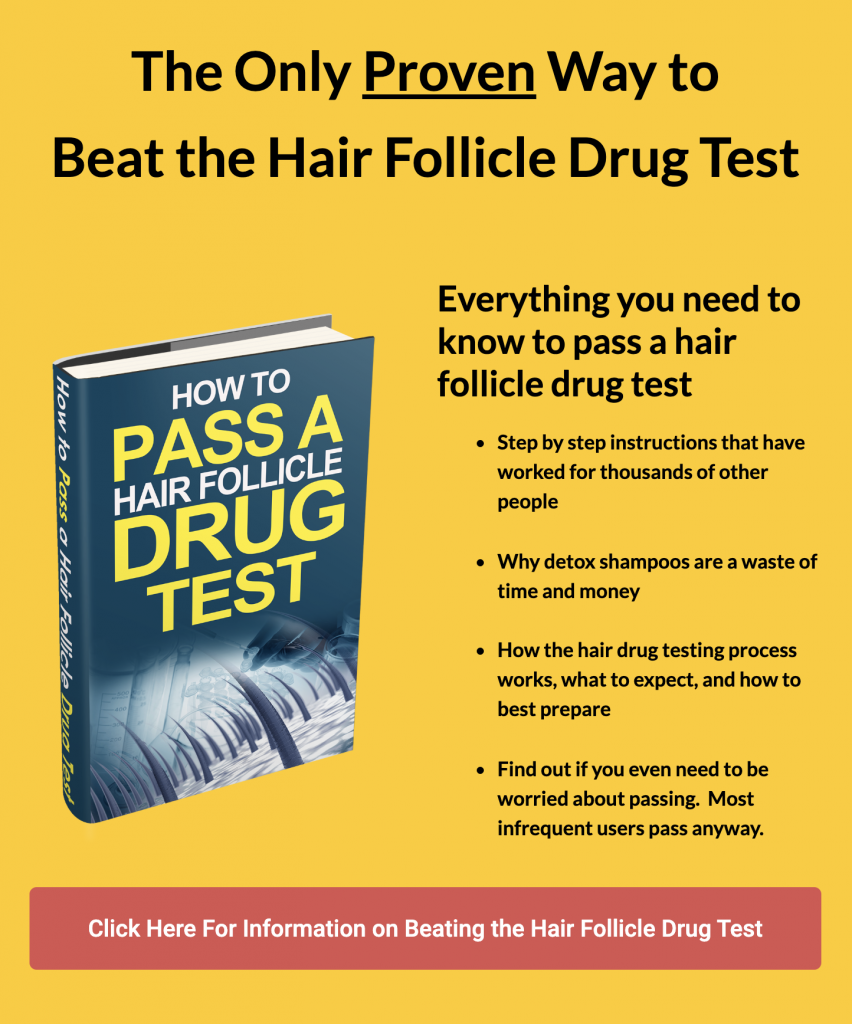We usually don’t delve into other types of drug testing but we felt that this was an interesting story that has implications for hair follicle drug testing. The Washington Post is reporting that several states are looking at banning the sale of synthetic urine which has become the go-to method for beating urine drug tests.
Beating a drug test is a bit of a dilemma as it pertains to submitting synthetic urine as there is potentially a crime being committed. Anyone caught submitting a synthetic urine sample could be charged with tampering with evidence, which may be a felony.

Learn How to Pass a Hair Follicle Drug Test
There is only one hair treatment method that has consistently produced "Passes" on the hair drug test and we want to show you how you can pass your test too.
It’s less of an issue with hair follicle drug testing as unlike a urine test where the subject essentially collects their own sample, samples for a hair follicle drug test are collected by a lab technician.
There are few effective ways to rid your urine of drug metabolites so for those seeking to beat a urine test, submitting an altered or synthetic urine sample is the only option guaranteed to produce a negative result.
However, with hair follicle drug tests, someone seeking to beat the test can eliminate or reduce drug metabolites in their hair before showing up at the drug testing facility.
Though, if enough people began doing it, surely legislatures would surely be pressured to find a “solution” to the problem which would likely entail making it a crime to alter one’s hair or to require test subjects to provide an attestation that they had not altered their hair for the purposes of passing a hair follicle test.
Interestingly, The Washington Post notes:
Companies nationwide have reported having trouble finding workers who can pass drug tests. The Federal Reserve reported in a “beige book” survey of economic activity last year that manufacturers have had difficulty hiring experienced or qualified employees, “with some citing candidates’ inability to pass drug tests or to consistently report to work.”
Given the fact that more and more states are passing laws permitting the medical use of marijuana, and several allowing recreational use, employers that continue to test for drug use, especially marijuana, in pre-employment screenings seem to be harming themselves.
It seems both counter-productive and illogical for a company to screen out applicants that may be engaging in an activity that is otherwise legal in the state they are applying for a job in or is legal in another state where the applicant legally engaged in the activity.
For instance, in Nevada, marijuana is legal for medical and recreational purposes. However, the state’s largest employers in the casino industry are notorious for having zero-tolerance laws and hair follicle drug test all applicants.
But this is a double-edged sword that can cut either way. While the trend is for companies to quit testing for marijuana during pre-employment screenings due to a tight labor market and the futility of eliminating job candidates that are engaging in a legal activity, surely we should expect that the drug testing labs and those stringently opposed to drug use to fight back, similar to how Attorney General Jeff Sessions has tried to use his office to reverse liberalization of drug enforcement laws in states where marijuana has been legalized for medical or recreational purposes.
However, it is an encouraging sign that businesses realize that it is a competitive disadvantage. If they have trouble finding the best candidates, they are going to be less productive, and make less profit.
And we see that trend playing out as more and more companies have eliminated marijuana from their applicant pre-screening drug testing.

